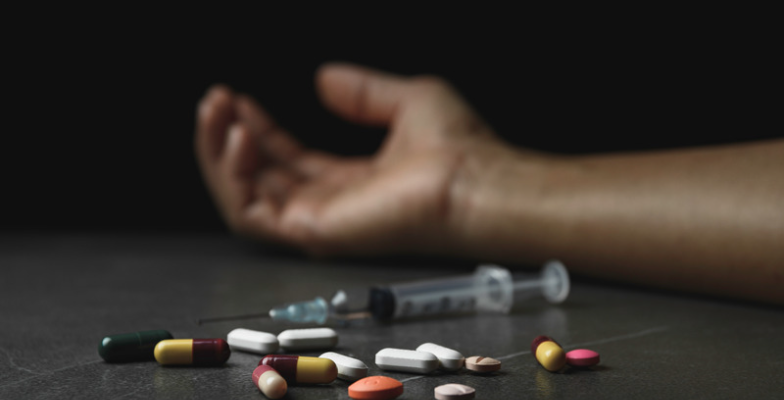Getting Help
Table of Contents
Tennessee has become a hub of activity for the transport of drugs, which then makes it to other states. The most common drugs in the state are cocaine, marijuana, and methamphetamine.
This activity has led to an increase in drug use in the state. According to the Tennessee Department of Mental Health and Substance Abuse Services, substance abuse is now a public health concern.

The drug crisis is sweeping the state. There are government and non-profit resources available to educate the citizens of Tennessee. The collaborative goal is to ensure as many people who need access to resources to save their lives have it.
Effective treatment, access to rehab programs, and proper education are critical. Those actions can save those with mental health and substance abuse disorders.
Southeast Addiction Center Tennessee can help you or a loved one with a substance use disorder (SUD). Located in Nashville, we are easily accessible to surrounding areas. Medical professionals lead our addiction treatment programs. They have dedicated their careers to treating substance abuse and mental health disorders. Our treatment programs include the following:
Our clients receive individualized treatment plans catering to their specific substances, preexisting conditions, and underlying disorders. While we have several therapy options, the care each person receives ultimately depends on their particular needs.
The following are the services we offer:
Failing to address the substance abuse crisis can lead to severe consequences. We’ve compiled facts to help you understand the immediate need for action.
Nashville Overdose Stats
In 2020, 421 overdose deaths occurred in Davidson County.
In 2021, 67% of the reported overdose deaths were men in Nashville/Davidson County. In addition, most of the deaths were people aged 35-44.
From 2020 to 2021, there was a 15% increase in drug-related deaths reported in the metro area.
Tennessee Overdose Stats
According to the Tennessee Department of Health, in 2020, there were 3,032 overdose deaths in Tennessee. With these numbers, Tennessee ranked 3rd in the country for drug overdose deaths.
Opioid use in Tennessee continues to rise. Of the state’s nearly 7 million residents, 70,000 have reported an opioid addiction. This makes the state 2nd in the nation for opioid addiction.
Underage binge drinking continues to be a problem as well. Of individuals aged 12-20, 11.45% reported binge drinking in 2014.
A University of Tennessee study found that over 50% of people with a substance abuse problem in the 2010s received their first dose from a family member or friend, which was not prescribed directly to them.
Deaths related to fentanyl have increased by 70% since 2016.

What to Do in the Event of an Overdose
If someone you know might be experiencing an overdose, you must respond with urgency.
Remain calm and consider the following steps:
- Time is of the essence when it comes to an overdose. Life-saving measures must be taken, so it’s crucial to call 911 immediately.
- Stay with the individual until help arrives. If the individual is responsive, keep them awake and speaking while monitoring their breathing.
- If you are trained to perform CPR, do so immediately. Alternatively, a 911 operator can talk you through the steps.
- Even if you aren’t sure if an individual has overdosed, the best course of action is to seek immediate medical help.
- If you have it, administer naloxone. In Tennessee, individuals can purchase naloxone from many pharmacies without a prescription. Local health departments and community-based organizations have naloxone at little or no cost to Tennesseeans. Naloxone rapidly reverses the effects of an opioid overdose and restores normal breathing.
Immediate and proper care is the only way to save lives. Calling emergency services for help is the most critical step to take in the possible event of an overdose.
Tennessee Overdose Prevention Resources
The following organizations provide information on overdose prevention and how to recognize the signs of an overdose. They also offer crisis intervention, support, and treatment information.
- Tennessee REDLINE
- Nashville Prevention Partnership
- Regional Overdose Prevention Specialists
- Tennessee Overdose Prevention
- TN Save a Life
The following organizations provide naloxone at little or no cost.
- Tennessee Department of Mental Health & Substance Abuse
- Tennessee Naloxone Training Program
- Pharmacy-based Naloxone Access
Nashville Overdose Prevention Resources
The following organizations provide access to crisis intervention, support, treatment, and recovery facilities.
- Metro Nashville Public Health Department
- Nashville CARES
- Tennessee Department of Health
- Addiction Campuses of Tennessee
- Tennessee Recovery Navigators
Organizations in Tennessee offer locations for dropping off used syringes in exchange for sterile ones. These sites also offer education and resources for treatment of substance abuse.
- Metro Public Health Department
- Nashville CARES
- Household Hazardous Waste
- Memphis Area Prevention Coalition
The following locations and organizations provide naloxone locally in Nashville:
- Nashville Prevention Partnership
- Metro Public Health Department of Nashville/Davidson County
- CVS stores in Nashville
- Walgreens
- Vanderbilt University Medical Center
National Overdose Prevention Resources
- National Council for Mental Well-being
- SAMHSA’s National Hotline
- Overdose Lifeline
- Never Use Alone
- National Overdose Prevention Network
- Crisis Textline
- Vital Strategies
If you or a family member needs support treating addiction or have recently had an overdose, we encourage you to contact Southeast Addiction Center Tennessee or access the available resources.
You or your loved one deserves to receive the care they need. Living in sobriety improves the quality of life and contributes to overall wellness. You can reach us at (615) 326-6449 or email us at info@southeastaddiction.com.